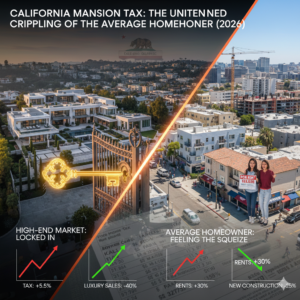Reverse Home Mortgages
 Just recently we saw that the rules for obtaining a reverse home mortgage were tightened to lessen the potential losses from the program. Now, starting in January anyone seeking an FHA backed reverse mortgage will for the first time ever have to qualify under comprehensive new quote financial assessmentsâ€
Just recently we saw that the rules for obtaining a reverse home mortgage were tightened to lessen the potential losses from the program. Now, starting in January anyone seeking an FHA backed reverse mortgage will for the first time ever have to qualify under comprehensive new quote financial assessmentsâ€
These new financial assessments look at the applicant’s credit history, household cash flow and debt levels to make sure that the applicant has the capacity and willingness to meet their financial obligations under the terms of the loan. Also, these regulations may require the applicant to set-aside sizable portion of their drawdown to handle property taxes and hazard insurance on the property. In addition, applicants will be required to pay substantially higher FHA insurance premium if they take out large amounts of cash at the closing.
Reverse mortgages are limited to senior homeowners and allows them to use the equity in their property to provide funds for their retirement years. Plus, with a reverse mortgage, one need not repay their principal balances plus their compound interest charges, until they moved from the home, sell it or die.
In recent years, losses caused by reverse mortgages have mounted. To avoid a treasury bailout of the FHA because of their high mortgage loan losses the FHA has cracked down on reverse mortgages. Some estimate that the new rules reduce the maximum drawdown that seniors can obtain by approximately 15%. Also, under this program, homeowners who take more than 60% of the maximum amount available to them up front , will also pay higher insurance premiums.
Some reverse mortgage specialist estimate that 40% of the potential applicants for these mortgages will vanish because of the new more stringent rules.
So, let’s compare a reverse mortgage currently in effect with a hypothetical one taken out after January 1, 2014: for a 70-year-old owner with the $200,000 house today, the  principal limit the amount available to the borrower would be approximately 132,600. Under the revised rule starting in January that amount would be nearly $20,000 less, or approximately 112,800.
But, the borrower in 2014 who wants the drawdown more than 50% of what’s available, will get hit by higher mortgage insurance premium as well as that set-aside for future property taxes and hazard insurance that may be subtracted from the initial drawdown of funds.
In conclusion, the FHA must cut losses and these new regulations concerning FHA reverse mortgages will bar many who were currently eligible from obtaining this source of funds in their retirement.





